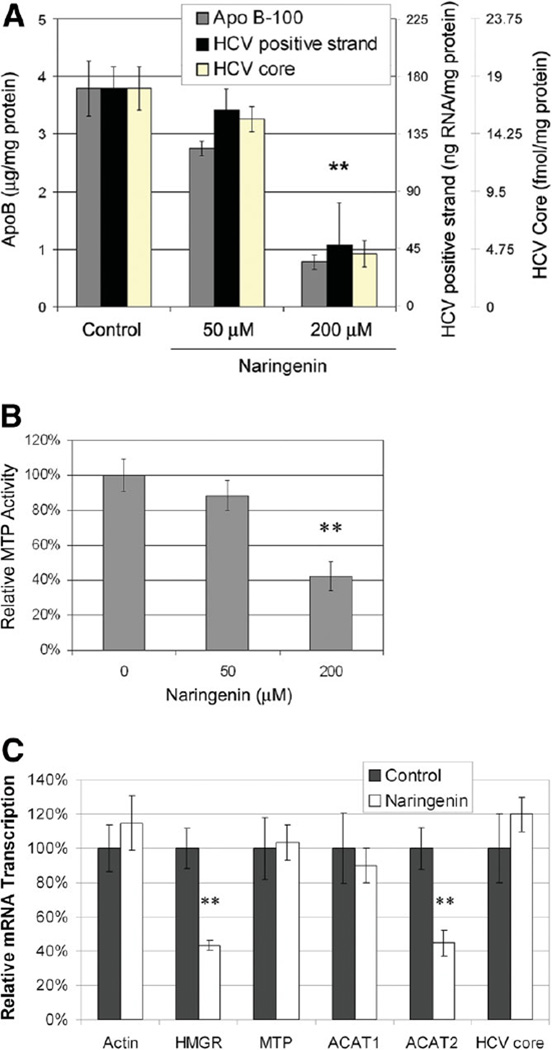Fig. 3.
(A) Inhibition of ApoB, HCV-positive strand RNA, and HCV core protein secretion by the grapefruit flavonoid naringenin. Naringenin significantly inhibits the secretion of HCV core (P = 0.0001, n = 6) and HCV-positive strand RNA (P = 0.0006, n = 5) in a dose-dependent manner. At the concentration of 200 µM, naringenin inhibited HCV secretion by 80% ± 10%. Cell viability for all conditions was greater than 90%. **P < 0.01. (B) Naringenin inhibits the activity of MTP in a dose-dependent manner. At the concentration of 200 µM, MTP activity was reduced by 58% ± 8% (P = 0.0012, n = 3). (C) Naringenin induces changes in hepatic gene transcription measured by qRT-PCR. HMGR transcription was reduced by 57% ± 3% (P = 0.010, n = 3), whereas the transcription of ACAT2 was reduced by 55% ± 7% (P = 0.016, n = 3). The mRNA levels of actin, MTP, and ACAT1 remained unchanged. Intracellular RNA levels of HCV core also remained unchanged during the 24 hours of treatment. **P < 0.02.

